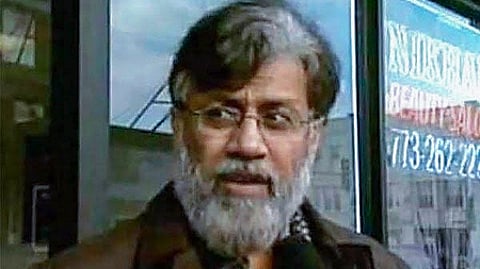

NEW DELHI: Mumbai terror attacks accused Tahawwur Rana has made an urgent plea to the United States Supreme Court, seeking an emergency stay on his extradition to India.
The Pakistani-Canadian former physician, who is wanted for his alleged role in the 2008 Mumbai attacks, claims he faces a high risk of torture and potential death if handed over to Indian authorities.
In his petition, Rana argued that his extradition would violate international and US legal protections against torture. “A stay is necessary, and needed on an emergency basis, because the government is likely to surrender petitioner to India if a stay is not granted, which would moot petitioner’s habeas petition and prevent any further proceedings thereon,” the plea stated.
His legal team emphasised that Rana, now 64, is in deteriorating health and unlikely to survive long enough to stand trial in India. They also claimed that India’s criminal justice system has a documented history of human rights violations, referencing US State Department reports detailing instances of extrajudicial killings, custodial torture, and mistreatment of detainees.
The plea said that on February 12, 2025, the day Indian Prime Minister Narendra Modi arrived in Washington to meet with President Trump, the very same State Department notified counsel for Rana that the Secretary of State had decided to authorise his surrender to India anyway.
Rana’s fresh plea before the Supreme Court also sought to challenge the US State Department’s decision to authorise his surrender to India, citing violations of the United Nations Convention Against Torture (CAT). “Doing so in the face of its extensive documentation of the Indian government’s abuses runs directly counter to the CAT as implemented in U.S. law,” the petition argued.
His defense further claimed that his identity as a Muslim of Pakistani origin, along with his past service in the Pakistani Army, would put him at a greater risk of mistreatment in India. The petition cited a Human Rights Watch report alleging “systematic discrimination and stigmatisation” of Muslims under India’s current government.
Tahawwur Rana is a known associate of David Coleman Headley, the Pakistani-American terrorist who played a crucial role in planning the November 26, 2008, attacks in Mumbai. The attacks, carried out by Lashkar-e-Taiba operatives, resulted in 166 deaths, including civilians and security personnel. While a US jury acquitted Rana in 2011 of charges related to the Mumbai attacks, he was convicted of supporting a separate terrorist plot targeting a Danish newspaper.
Despite Rana’s arguments, the US government has firmly supported India’s request for extradition.
The US Supreme Court recently rejected his review petition, effectively clearing the way for his transfer. Following the court’s decision, President Donald Trump announced that his administration had approved the extradition, calling Rana “very evil” and emphasising his alleged role in supporting terrorism.
Rana has been fighting his extradition since 2020, arguing that the US-India Extradition Treaty does not allow for his transfer. However, multiple US courts, including the Ninth Circuit Court of Appeals, have rejected his claims.